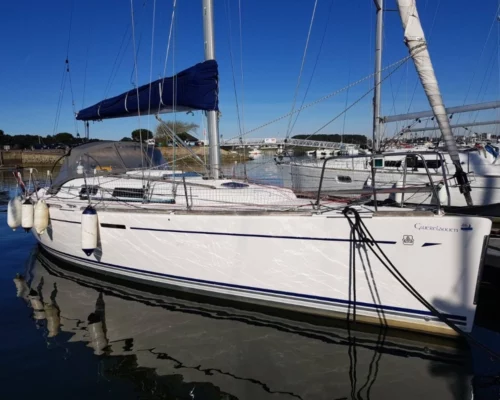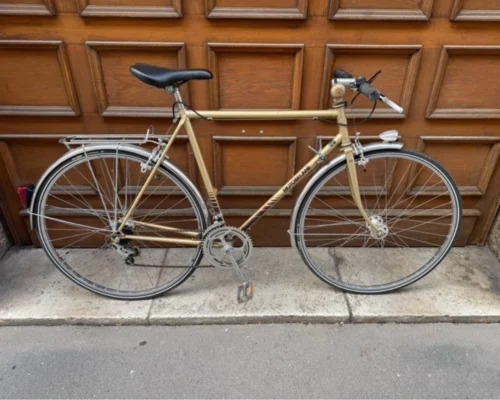Pope Francis Dies at 88: The End of a Transformative Pontificate
A revolutionary pope
A historic chapter in the Catholic Church came to a close on Monday, April 21, with the death of Pope Francis at the age of 88, as announced by the Vatican. The first Latin American and Jesuit pope, Jorge Mario Bergoglio was elected in 2013 following the unprecedented resignation of Benedict XVI. His papacy, marked by reformist ambitions, social advocacy, and personal humility, has left a lasting legacy.
A man from modest beginnings
Born in 1936 in Buenos Aires to Italian immigrant parents, Bergoglio grew up in modest surroundings. Before entering the priesthood, he studied chemistry and briefly considered marriage. However, a spiritual calling led him to join the Society of Jesus at the age of 21. He was ordained a priest in 1969, became bishop in 1992, and was made a cardinal by John Paul II in 2001. Known for his deep connection with the poor, he often traveled by public transport and maintained a simple lifestyle, earning the nickname “the pope of the poor.”
An unexpected election
His rise to the papacy in March 2013 stunned observers. Though he had been a contender in the 2005 conclave that elected Benedict XVI, he was not seen as a favorite this time. Upon his election, he humbly declared, “The cardinals went to the ends of the Earth to find me,” and chose the name Francis in honor of Saint Francis of Assisi, symbolizing his commitment to humility, peace, and care for the marginalized.
A pontificate of reform and openness
Pope Francis’s pontificate was defined by efforts to reconcile the Church with modern challenges. He forcefully addressed the global migration crisis, denouncing the “globalization of indifference” and advocating for the rights of refugees and the poor. In 2015, he published the encyclical Laudato si’, a passionate plea for environmental action, which positioned climate change as “one of the principal challenges facing humanity.”
His approach to Church doctrine was nuanced. Though he expressed compassion toward LGBTQ+ individuals—calling for an end to the criminalization of homosexuality—he reaffirmed traditional Catholic teachings by labeling it a “sin.” Similarly, while acknowledging the conversation around priestly celibacy, he remained noncommittal on reform, suggesting it may be reconsidered by a future pope.
Struggles with internal resistance
Francis also sought to cleanse the Church from within, confronting financial mismanagement in the Vatican and launching a reform of the Curia, the Church’s central administration. He did not shy away from criticizing internal dysfunction, famously warning the clergy against “spiritual Alzheimer’s” and “the terrorism of gossip.” Yet, these reforms faced considerable resistance, particularly from conservative factions.
His response to sexual abuse scandals
The pope’s handling of clerical sexual abuse was both praised and criticized. He issued landmark measures, such as lifting the pontifical secret on abuse cases and mandating reporting by clergy. However, victims’ groups often felt these steps fell short of true justice.
A man of words and books
Throughout his twelve-year pontificate, Pope Francis cultivated a unique public image—one of humility, accessibility, and intellect. A lover of literature, he taught the subject in his youth and surprised many by publishing a letter in 2024 extolling the works of Proust and Borges. He saw literature as a vital tool for facing life’s storms and lamented its absence in priestly training.
A pope weakened by illness
His health, however, had been in decline in recent years. A partial lung removal in his youth was followed by a series of hospitalizations for colon surgery in 2021, a hernia in 2023, and bronchitis in early 2025. Since 2022, he had been using a wheelchair or cane. Despite these challenges, he maintained an active schedule, embarking in 2024 on his longest trip yet, a twelve-day tour of Southeast Asia and Oceania.
His final hours
Pope Francis died on the morning of April 21. “At 7:35 this morning, the Bishop of Rome, Francis, returned to the house of the Father,” announced Cardinal Kevin Farrell on Vatican television. The man once described as “from the ends of the Earth” had become a spiritual leader for the entire globe—revered, challenged, but never ignored.

Sailing boat Dufour 34 (Larmor Plage) Lorient
380€ per dayBrittany, Morbihan (56), Lorient 56100
Citroen DS5 2.0 HDi Hybrid4 SportChic
75 € per dayPas-de-Calais, Nord-Pas-de-Calais, Beaurains 62217
Flat 3 rooms Agde 34300
165€ per nightLanguedoc-Roussillon, Hérault (34), Agde 34300
BAYLINER VR5 ski boat - perfect condition / fresh water
170€ per night
Rhône-Alpes, Haute-Savoie (74), Doussard 74210
Flat Duplex 3 rooms Loudenvielle 65510
190€ per nightMidi-Pyrénées, Hautes-Pyrénées (65), Loudenvielle 65510
Motobécane city bike
25€ per dayRhône (69), Rhône-Alpes, Lyon 69000, Lyon 6ème Arrondissement




